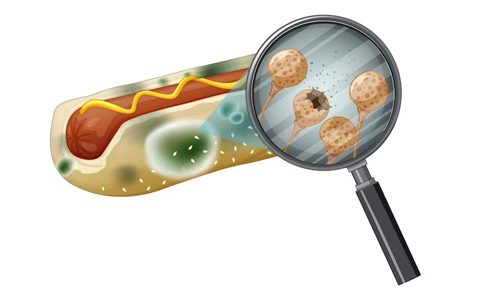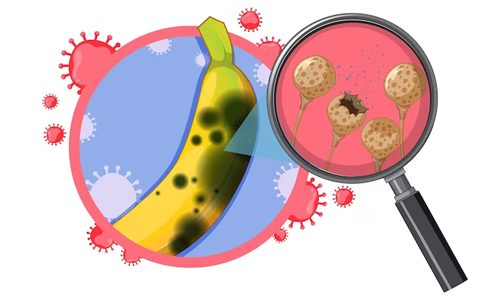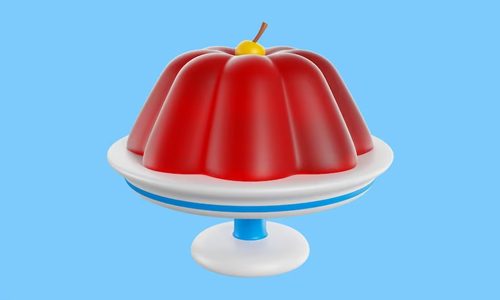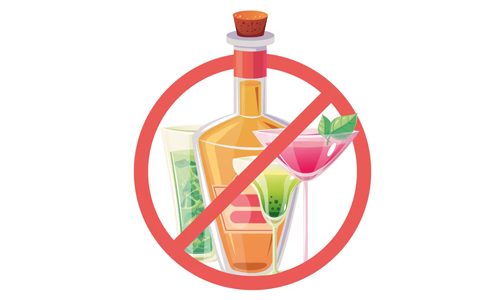Yes, foodborne illnesses transmitted by bacteria, parasites, and viruses are contagious. Poisoning caused by chemicals and toxins is rarely contagious. Consuming contaminated water and food is the major reason for the rise of food poisoning. Symptoms may vary from person to person. Some common symptoms are vomiting, nausea, indigestion, abdominal cramps, fever, and diarrhea. Some people develop symptoms within an hour or day after consuming the food.
Chemicals and toxins found in food can also lead to food poisoning, but it is not as contagious and severe as the sickness caused by bacteria. Continue reading this blog to find out answers to this question ‘is food poisoning contagious?
Types Of Food Poisoning
More than 250 types of food poisoning have evolved in the world. The following organisms are the major reasons for them.
Food Poisoning from Bacteria
When you consume contaminated food or water, bacteria leech into the gastrointestinal tract and cause sickness. Salmonella, Shigella, E.Coli, Listeria, Campylobacter jejuni, and Staphylococcus aureus are the bacteria that cause foodborne illness.
The contamination could have happened in different ways such as
- The food might have spoiled already or contaminated with bacteria
- Contaminated by bacteria during storage
- Placing the food on contaminated surfaces
- Preparing the food with unwashed hands and keeping it in contaminated vessels
Don’t keep the food uncovered for too long, close it with a lid and refrigerate it. Try to avoid if the food has a foul smell.
Food poisoning from Viruses
Viruses can be found in food, or transmitted from person to person. Norovirus, a common foodborne illness may raise the inflammation in stomach and intestines. Hepatitis A is another virus that is more contagious and often leads to liver infection. This virus can be seen in the stool or blood of the infected people. And that is why people are advised to wash their hands after using the restroom. Otherwise, they can spread the virus through handshake or the surfaces they touch like floors, plates, switches, handles, and so on.
Salmonella and Campylobacter can live on the surface for up to four hours, meanwhile, norovirus can live for weeks.
Food poisoning from Parasites
Unlike bacteria, parasites are organisms that develop in different sizes. Some are microscopic while others are large enough to see through the naked eye. They can be found in other organisms, from where they receive the nutrients. Parasites live in the stools of humans and animals.
What to do When you have Food Poisoning?
When you are suffering from food poisoning, make sure you stay home so that you get adequate rest and you don’t spread it to others. Go out only if there is a dire necessity. Keep yourself hydrated by drinking plenty of water.
We cannot say for sure whether a particular case of food poisoning is contagious or not. However, since the microbes causing food poisoning are contagious, you need to assume that your case (if you’re facing it) is contagious, to be on the safer side. It is also extremely important to practice proper hand hygiene. Last but not least, get the advice of your healthcare provider.
Foods You Can Eat During Food Poisoning
- Broth-based soup
- Pasta in soup
- Jell-O
- Saltine Crackers
- Oral hydration solutions
- Apple Juice
Food You Should Avoid During Food Poisoning
- Caffeinated Drinks
- Alcohol
- Diet drinks
Foods You Can Eat After Food Poisoning
- Pastas
- Bread
- Crackers
- Rice
- Cereal
- Oatmeal
- Toast
- Bananas
- Egg whites
Do not include spicy food after recovering from food poisoning. Start with mild and fiber-rich foods to avoid further complications.
Ways to Prevent the Spread of Food Poisoning
Food poisoning is contagious, so anyone can contract it knowingly or unknowingly. Once you sense the symptoms, you need to take preventive measures as soon as possible. Vomiting and diarrhea will cause dehydration, and dizziness, in such cases, the patient should be hospitalized before getting critical. Here are some simple methods to treat and prevent food poisoning.
- Staying hydrated. Consuming oral rehydration solution may help retain the water level and keep you energized for some time.
- Most bacterial infections don’t require specific treatments as they will be solved eventually. Take antibiotics to destroy the bacteria
- Most importantly, wash your hands with soap and water after using the bathroom. Don’t hesitate, or else you may be prone to such contagious diseases.
- Once you identify the symptoms, try to stay away from school or work until you recover.
- Avoid preparing foods until you become better
- Disinfect the common places in your home. Ensure cleanliness in the spots like light switches, door knobs, remotes, and kitchen counters.
- Clean the bathrooms often, and keep disinfectant wipes or sanitizer near the common spots.
- Wash the vegetables thoroughly before cooking them. Refrigerate the vegetables to avoid getting spoiled.
- Suppose you plan to eat outside and stick to mild and non-spicy food. Instead, you can prefer light foods like vegetable soup.
- Try to avoid foods that include eggs, mayonnaise, seafood, meat, poultry, or unpasteurized cheese.
- You can follow some quick and easy home remedies to cure food poisoning like drinking lemon juice or ginger extract.
When you follow the above measures, you can prevent germs causing food poisoning from spreading to others. But as the saying goes, “Prevention is better than cure,” eat food that is properly cooked, store food in refrigerators (if necessary), and avoid eating unhealthy food.
Stay healthy, stay safe!






















